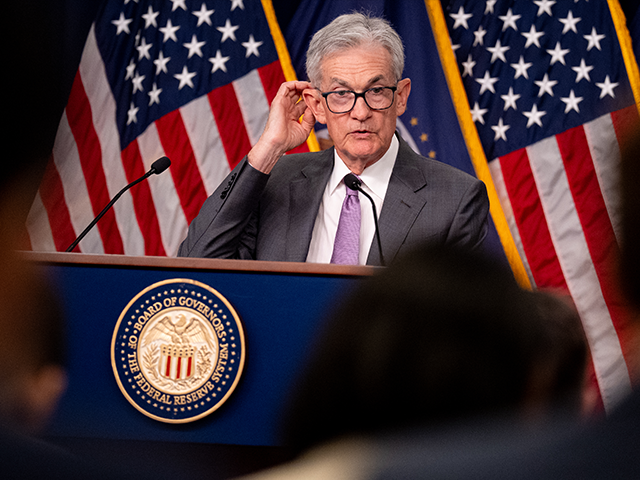High Expectations for Trump Lowered Inflation Expectations
In a presidential election year, many economic surveys cannot escape the gravity of expectations about the outcome of the presidential election.
The Federal Reserve Bank of New York’s monthly survey of consumer expectations showed a surprising decline in inflation expectations over the three-year time horizon. Median three-years-ahead inflation expectations fell by 0.6 percentage points to 2.3 percent, the lowest level since the survey’s inception in June 2013.
What made that result even more odd is that inflation expectations over the next year and five-years ahead were unchanged, at 3.0 and 2.8 percent respectively. This suggests that Americans think inflation will stay high over the coming year, fall over the following few years, and then start rising again.
The simplest explanation for this result is politics: people expect less inflation if Donald Trump is elected—and in July they were expecting Trump to win. This would explain why inflation expectations would fall in what would be the second and third year of Trump’s second term—and then rise again under a successor.
Even though Kamala Harris and Trump are now neck-and-neck in most polls, with many having Harris in the lead both in who people intend to vote for and who they think will win, this was not the case for most of July, when the New York Fed survey was taken. Back then 49 percent of the public expected Trump would win in November, compared with just 26 who said they expected Joe Biden to win, according to polling done by YouGov for the Economist.
By subscribing, you agree to our terms of use & privacy policy. You will receive email marketing messages from Breitbart News Network to the email you provide. You may unsubscribe at any time.
Further evidence for this can be seen in the breakdown of inflation expectations by educational attainment. Fifty percent of Americans with no more than a high school degree identify as Republicans, versus 36 percent as Democrats. Similarly, Trump leads in most surveys of noncollege educated voters.
In the New York Fed survey, inflation expectations among college graduates over the next year were unchanged, and they ticked up by one-tenth of a percentage point over the next three years and the next five years. That’s pretty much unchanged across the board.
Inflation expectations among those with a high school degree or less, however, moved sharply. Over the next year, expected inflation fell from three percent to 2.5 percent. Five years ahead, median expected inflation ticked down from 2.5 to 2.4. But in that three-year window, the median expected inflation fell from three percent to 1.5 percent.
In other words, inflation expectations fell sharply among the demographic group that favors Trump for the presidency—and for the period in which he would be president if he got elected.
If our analysis is correct, this could mean that inflation expectations will rise again if Harris is able to sustain or build on her polling gains in recent weeks.
A Weird Flat Line in the New York Fed’s Survey
We noticed something quite odd in the New York Fed survey: the median earnings expectations of college graduates have flatlined.
In addition to asking about inflation expectations, the New York Fed’s survey asks about expectations for things like job security, household income, and earnings. You can use the bank’s website to break the responses down by age, education, income, numeracy, and region. (Interestingly, however, there’s no breakdown by race, which seems refreshing in our race-obsessed era.)
While we were examining the latest data, we decided to look at the earnings growth expectations for college graduates. What we found surprised us. The series displays the expected bumpiness month-to-month up until June 2021. At that point, expected earnings growth rises to three percent and then stays there for the next 37 months.
It’s very rare to see any kind of economic survey data go unchanged for that length of time, especially when the survey is asking about something as normally volatile as earnings growth expectations. These respond to economic conditions, and so they tend to bounce around quite a bit.
Indeed, the earnings expectations for people with some college but no degree and people with no more than a high school degree have continued to be bumpy throughout the post-pandemic period. It’s only the college grad expectations that display this behavior.
We asked the New York Fed what could be going on here. A spokesman for the Fed tells us that it is not an error in the data. So, what else could it be? If we get any more clarity from the New York Fed, we’ll keep you posted.




COMMENTS
Please let us know if you're having issues with commenting.